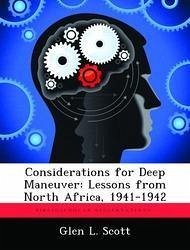Nicht lieferbar

Culture and Identity: Critical Considerations for Successful State-Building Endeavors
Versandkostenfrei!
Nicht lieferbar
The attacks against the United States on September 11, 2001, originating from Afghanistan, and the earthquake in January 2010 that devastated Haiti illustrate the different dangers that weak and failed states represent to the international community. While failed states are not new, globalization magnifies the effect they may have on the international community in a manner disproportional to their status and strengthen as nation-states. When the international community and the United States intervene in failed states to relieve humanitarian crises and/or reestablish stability, the donor nation...
The attacks against the United States on September 11, 2001, originating from Afghanistan, and the earthquake in January 2010 that devastated Haiti illustrate the different dangers that weak and failed states represent to the international community. While failed states are not new, globalization magnifies the effect they may have on the international community in a manner disproportional to their status and strengthen as nation-states. When the international community and the United States intervene in failed states to relieve humanitarian crises and/or reestablish stability, the donor nations often implement state-building programs to affect change in the failed state. However, after the departure of the donor nation, the failed state often fails to thrive or reverts to its previous form. This monograph argues that state-building efforts yield inconsistent results due to a failure to consider the culture and identity of the failed state when developing state-building policies and programs. Analyzing primary source documents, the US interventions into Haiti in 1915 and 1994 serve as a cross-temporal case study for this monograph. Research discovered some awareness of Haitian culture among political policymakers and military leaders, but no evidence exists of any definitive effort to develop or adjust US policies or programs based on this awareness. Achieving enduring success in state-building requires considering a new approach that incorporates culture and identity as critical considerations in these endeavors.







